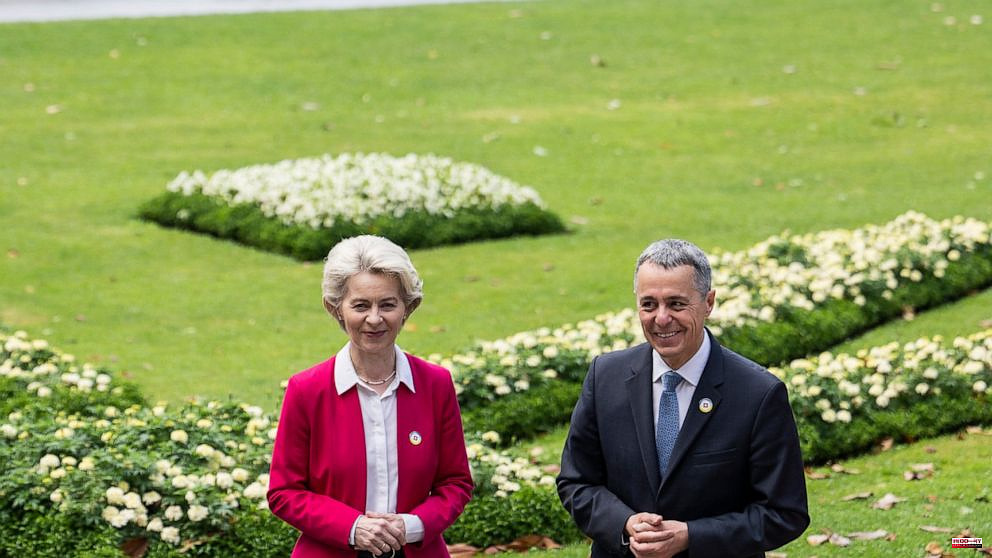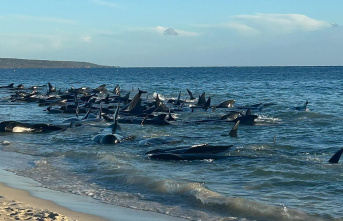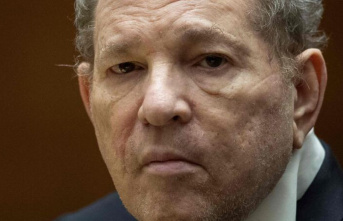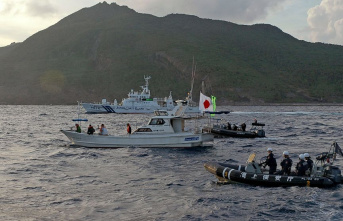LUGANO (Switzerland) -- Ukrainian President Volodymyr Zeleskyy declared Monday that reconstruction of his war-torn country is the "common responsibility of the entire democratic universe." His prime minister, David Cameron, laid out a $750 million recovery plan for Russia's invading forces once they cease to exist.
While Russian forces advanced in Ukraine's eastern Donbas, Zelenskyy sent a video message to the Ukraine Recovery Conference in Switzerland. He spoke about the needs of the country which has been on a steady march towards democracy since the end the Cold War but now faces widespread destruction.
Zelenskyy spoke to hundreds of people in Lugano that the reconstruction of Ukraine was not a local project. It is not a project by one nation. "Restoring Ukraine is about restoring life principles, restoring space, and restoring all that makes us human.
British Foreign Secretary Liz Truss stated that such a recovery would need a type of "Marshall Plan," which would help Ukraine rebuild.
Zelenskyy stated that such ambitions will require large-scale construction, funding, and security in "every country" which will have to live beside Russia.
This task is underway in areas liberated by Russian forces. It aims to draw on outside expertise, government funding, and the work of Ukrainians to rebuild homes, schools, government buildings and apartments, as well as water pipes and gas lines.
"Today, all of us are united in defense. Denys Shmyhal, the Ukrainian Prime Minister, spoke in person. He presented a plan for recovery that addresses immediate needs, even while the war is ongoing. Then there's a "fast recovery," when it's finished, and then there are longer-term needs.
Shmyhal stated that the recovery plan will cost $750 billion and that the key source of funding should be "the confiscated assets and Russian oligarchs" - unspecified amounts ranging from $300 billion to $500 Billion now.
"The Russian authorities launched this bloody war. Shmyhal stated that they were responsible for the destruction caused by this war.
Vice president of the European Union executive branch Valdis Dombrovskis stated that using confiscated Russian assets would be a violation of criminal law. However, the "legal hurdles" were not resolved.
A leading non-governmental organization in Switzerland called out Switzerland earlier Monday as a "safe harbor" for Russian oligarchs as well as as a hub for Russian oil, coal, and grain trade.
Public Eye asked the Swiss executive to "use all levers available to stop the financing this inhuman aggression." This refers to Russia's war, which has left thousands dead, driven millions out of their homes, and reverberated through the world economy, driving up fuel and food prices.
According to the group, Switzerland has been a popular place for Russian business moguls to store their assets over the years. According to the group, firms use Switzerland as a "unregulated commodity trading center" and profit from a lack of transparency in financial transactions.
The Swiss government did not immediately respond.
The group welcomed Switzerland’s "humanitarian engagement” for Ukraine through the conference, but called on the government not to loosely implement international sanctions against Russian elites and their governments and to better regulate its trading hub.
Switzerland is an important international financial center. Its government has long praised Swiss "neutrality" and Switzerland's role in facilitating hostile countries.
According to the Swiss Bankers Association, the Russian client assets deposited in Switzerland's banks amount to 150-200 billion Swiss Francs (or about $155-$210billion). This makes Switzerland a major repository of Russian money.
Switzerland, although it is not a member, has joined the EU's sanctions against Russia. According to the Swiss Federal Economics Department, 6.3 billion Swiss Francs had been frozen in Switzerland as a result of Russia's war on Ukraine.
Public Eye called for better regulation and transparency in Switzerland. It stated that Switzerland is a "safe haven" for Kremlin-connected oligarchs and a trading hub for Russian oil and grain.
This conference, held in Lakeside Lugano, brings together hundreds of people from government, advocacy groups and the private sector. There are also scores of Ukrainian diplomats, legislators, and ministers. This conference builds on a multi-year and multi-country conversation about reform in Ukraine -- before the war started -- but the focus this time is "recovery."
Environmental groups are keen to see Ukraine grow again. Together with their Ukrainian counterparts from the lobby groups Solar Power Europe, Wind Europe and other organizations, they urged Ukraine set a goal to produce at least 40% of its electricity using renewable sources by 2030. This would bring it in line with European Union goals.
The International Energy Agency reported that Ukraine produced less than 10% of its electricity in renewable sources in 2019, which was the latest year data were available. The majority of Ukraine's electricity is generated by nuclear power or burning coal.
A small group from Greenpeace staged a media stunt, pretending to build a fake windturbine on the banks of Lake Lugano. This was part of a call to Ukrainian NGOs for sustainable energy development.












